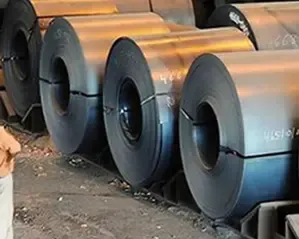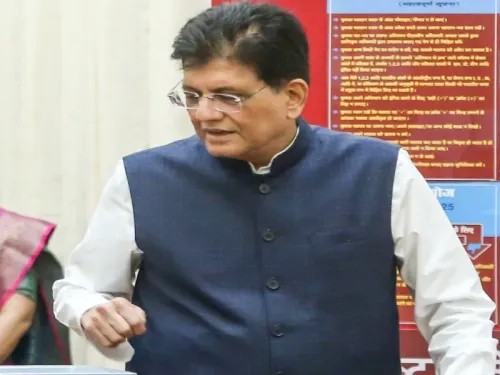South Korea's Steel Exports to the U.S. Drop 19% in March Due to Trump Tariffs

Synopsis
Key Takeaways
- South Korea's steel exports to the U.S. dropped by 19%.
- Trump's tariffs on steel imports began on March 12.
- Hyundai Steel plans to invest $5.8 billion in a U.S. production facility.
- The government promises swift support for affected industries.
- First quarter exports declined by 2.1% overall.
Seoul, April 18 (NationPress) The export of steel products from South Korea to the United States saw a significant decrease of nearly 19 percent compared to the same month last year in March, as reported on Friday. This decline may be attributed to the stringent tariffs enforced by the administration of Donald Trump on all steel imports, which took effect last month.
According to data released by the Korea International Trade Association (KITA) and reported by Yonhap news agency, the total outbound shipments of steel products to the U.S. amounted to US$340 million in March, reflecting an 18.9 percent drop from March of the previous year.
This decline coincided with the implementation of 25 percent tariffs on all steel imports, which began on March 12 (U.S. time). This move was part of a broader strategy to address America's trade deficits and support local manufacturing.
The U.S. government's elimination of duty-free quotas for steel imports from South Korea and other nations has also contributed to the situation.
Experts in the industry have indicated that evaluating the full impact of these tariffs on Seoul's steel exports is challenging, given that transactions often occur months in advance. However, it is likely that the tariffs have had some effect.
In response to the tariffs, South Korean steel manufacturers are devising strategies, including plans by some companies to boost production within the U.S.
For instance, Hyundai Steel Co. is set to invest $5.8 billion in establishing an electric arc furnace-based steel mill in Louisiana by 2029, marking its first production facility outside South Korea.
The trade minister has indicated that South Korean exports may significantly feel the effects of U.S. tariffs beginning in the second quarter, and has promised swift support measures for industries that are impacted.
“Local industries are increasingly anxious as unprecedented uncertainties continue,” stated Trade Minister Cheong In-kyo during a meeting with officials involved in exports, emphasizing that the repercussions of the tariffs imposed by the Trump administration are expected to manifest in the second quarter.
Cheong assured that the government will collaborate with relevant authorities to monitor regional export conditions closely and quickly develop strategies to mitigate challenges faced by domestic exporters.
Furthermore, the government has unveiled plans to inject trillions of won in financial aid to assist exporters in coping with the ramifications of Washington's substantial tariffs on vital goods, including steel, aluminum, and automobiles.
In the first quarter, South Korea's total outbound shipments experienced a 2.1 percent decline from the previous year, totaling US$159.8 billion, largely due to poor performance in the automotive and machinery sectors, as per government data.









